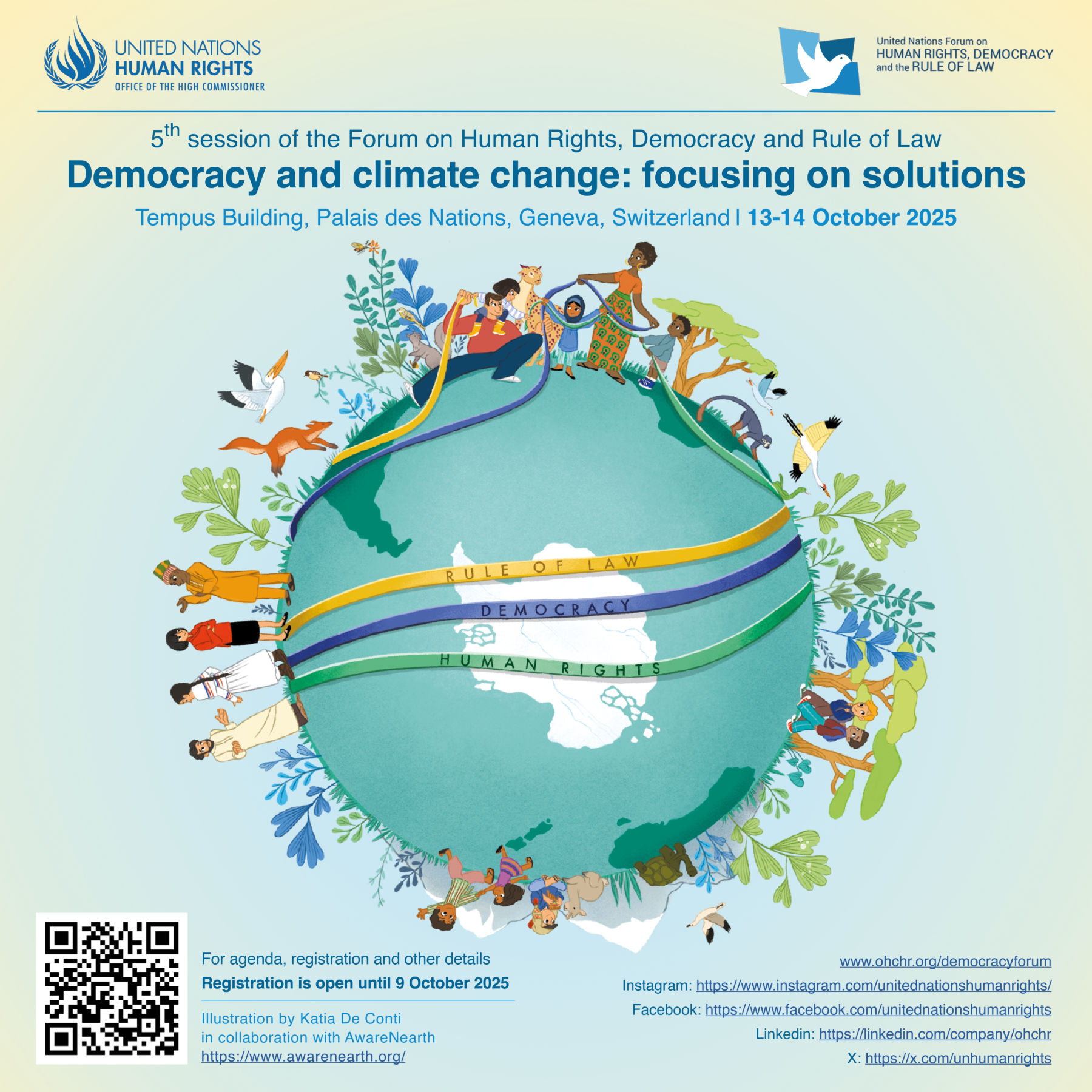Coppieters at Major UN Democracy Forum in Geneva to Find solution on the Climate Crisis
The fifth session of the UN Forum on Human Rights, Demcoracy and the Rule of Law focused on finding solutions to face the climate crisis.
Coppieters foundations joined experts from around the world at Palais des Nations in Geneva for the 5th Forum on Human Rights, Democracy and the Rule of Law.
The theme “Democracy and Climate Change: Focusing on Solutions” to discsuss how climate change is testing the limits of democracy but also reinforce its strengths: the ability of open societies to adapt, participate, and act together.
At the opening speeches, Forum’s Chair, Ambassador Ioannis Ghikas, renewed the purpose of meeting: to “explore how democratic systems can rise to the challenge of a changing climate”
During the initial meeting of the Forum 3 special UN mandate holders took the floor:
Volker Türk, the UN High Commissioner for Human Rights advocated for climate governance to look beyond the short cycle of elections. He called for rights-based decision-making, protection of civic space, and what he framed as “human rights economy” that puts sustainability at the center of development.
Denise Dora, Special Envoy for Human Rights and Just Transition, emphasized that women, especially those defending land and nature, are often disproportionately impacted.
Elisa Morgera, UN Special Rapporteur on Human Rights and Climate Change, highlighted the need to protect the access to science and reliable information to build resilient democracies.

The 2 days event then continued with specialised pannel discussions on:
Panel 1 explored how societies might evolve under environmental pressures. Speakers warned of the mismatch between political and ecological timelines, the human cost of rising seas, and the importance of anticipatory protection and ecological security. Discussions highlighted the critical role of public trust: the more climate action is relevant to people’s daily lives, the more effectively it can be implemented. The panel also emphasized that children and youth must be treated as active participants, not passive future citizens.
Panel 2 focused on participation, accountability, and fundamental freedoms. Protecting the space for protest, defending scientific integrity, and countering misinformation were identified as essential for a climate-just world. Participants stressed that civic engagement and information integrity are critical enablers of effective climate action.
Panel 3 examined global governance structures. Experts discussed the need to reform international frameworks to be more inclusive, participatory, and responsive, ensuring that fossil fuel transitions are just and that Indigenous communities are fully involved in decision-making. Courts and advisory opinions were highlighted as tools to clarify legal obligations and enforce protections for future generations.
Panel 4 explored the role of law in driving climate accountability. Legal instruments, strategic litigation, and emerging treaties were presented as mechanisms to hold states and corporations responsible, define environmental crimes, and strengthen preventive action.
Panel 5 focused on linking human rights with climate solutions. Discussions stressed that any response excluding human rights is destined to fail. Indigenous communities, women, and vulnerable populations must be included in decision-making, while interventions like geoengineering require careful scrutiny to prevent irreversible harm.
Panel 6 emphasized integrated, cross-sectoral approaches. Nature-based solutions, biodiversity protection, climate reparations, and city-level adaptation strategies were highlighted as ways to address systemic challenges. Rights-holders, including youth, Indigenous Peoples, women, and marginalized groups, must have active participation in shaping solutions.
In closing, the Forum reinforced that the struggles for democracy and for the planet are inseparable.
Successful climate action depends on participation, transparency, and justice, ensuring that solutions are inclusive, accountable, and infused by human rights.
Protecting the planet and strengthening democracy are mutually reinforcing goals, and humanity’s future must be built through cooperation.
. . .
The Coppieters Foundation is financially supported by the European Parliament. The European Parliament is not liable for the content of the article.
. . .
Photo by Jimmy Woo on Unsplash
. . .
Thank you for following our activities over the past few years. We hope our updates have been useful to you. We would like to keep informing you about upcoming events, new publications, summer schools, and job vacancies. Subscribe to our newsletter to hear from us in your inbox.